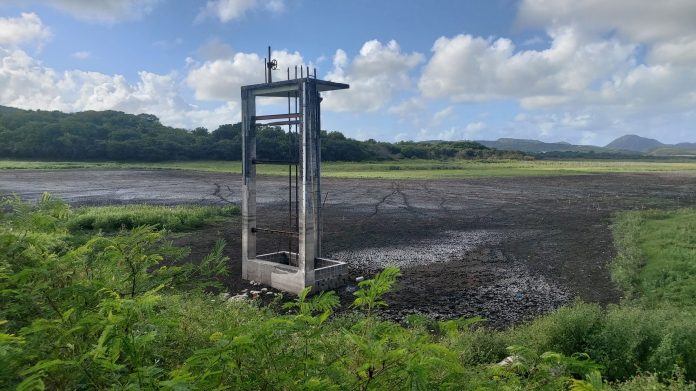
By Elesha George
Political pollster and the Director of Caribbean Development Research Services (CADRES), Peter Wickham has described the years of unresolved water problems in Antigua and Barbuda as one of the “leading shortcomings” of the Antigua Barbuda Labour Party (ABLP) regime.
Water is a basic necessity in any country but getting sufficient supply for household chores has proved an immense challenge for residents.
Wickham believes that the ABLP’s failure to improve the water supply across the country could present a challenge when the general election is called.
“You come in with a promise to fix it;, you should have had fixed it and I think that is a reasonable basis on which to criticise the administration,” he remarked.
In 2014, even while the country continued to suffer from what the Antigua and Barbuda Meteorological Services dubbed “the worst drought since the 2002/2003”, the ABLP built its re-election campaign on its ability to provide potable water to residents, among other solutions.
The party was able to convince voters to elect the Gaston-Browne led regime, effectively replacing the two-term United Progressive Party (UPP) government.
However, fast forward eight years later, and Wickham is calling the problem “scandalous”.
A scandal, in the sense that it was the same failed promise that he said helped unseat the Baldwin Spencer administration.
Furthermore, Wickham said the issue is still rooted in the same problems that caused the collapse of the UPP in 2014.
“I think the water situation is scandalous. The issue of water helped bring down the Baldwin Spencer administration and I think it is most unfortunate that we’re still able to have this conversation after the first term of the Gaston Browne administration has passed and the issue of water is still very much on the table,“ he posited.
Even with the ABLP’s efforts to increase the water output by increasing the number of reverse osmosis plants available on the island, the party has been unable to solve the overall water storage and water retention problems posed by aged and leaking pipes.
Wickham recalled: “I remember the election where the government was changed, what was telling for me when I was on the ground when I saw a lady dressed in her church clothes with an SUV filling up bottles of water to carry back home to do goodness knows what. I thought that that spoke dimly in relation to the way the Baldwin Spencer administration had prioritised and the fact that similar scenarios are still playing out in various places of St John’s is scandalous.”
Some residents believe that the issue of water shortage has been a political ploy used for decades to capture the votes of a population that is in short supply of a resource needed to ensure proper health care and a decent standard of living.
There are also those who believe that only the utility company can solve the problem, while another fraction of residents say it is enough to vote out the administration.
Despite plans to further increase reverse osmosis plants, with little to no rainfall in the months ahead, moderate or worsened long-term drought is likely to affect Antigua and Barbuda by the end of May 2022.
According to the Caribbean Drought and Precipitation Network’s (CDPMN’s) latest Caribbean Drought Bulletin, areas ending in long-term drought by the end of May are expected to experience “significantly reduced water levels in large reservoirs, large rivers and ground water during the season”.
In its prediction, the network said a drought warning should be considered for not only Antigua and Barbuda, but countries like Aruba, central and southern Belize, Dominica, Guadeloupe, Martinique, and Saint Lucia.
A drought warning is the last level before a drought emergency is declared in these Caribbean countries.
